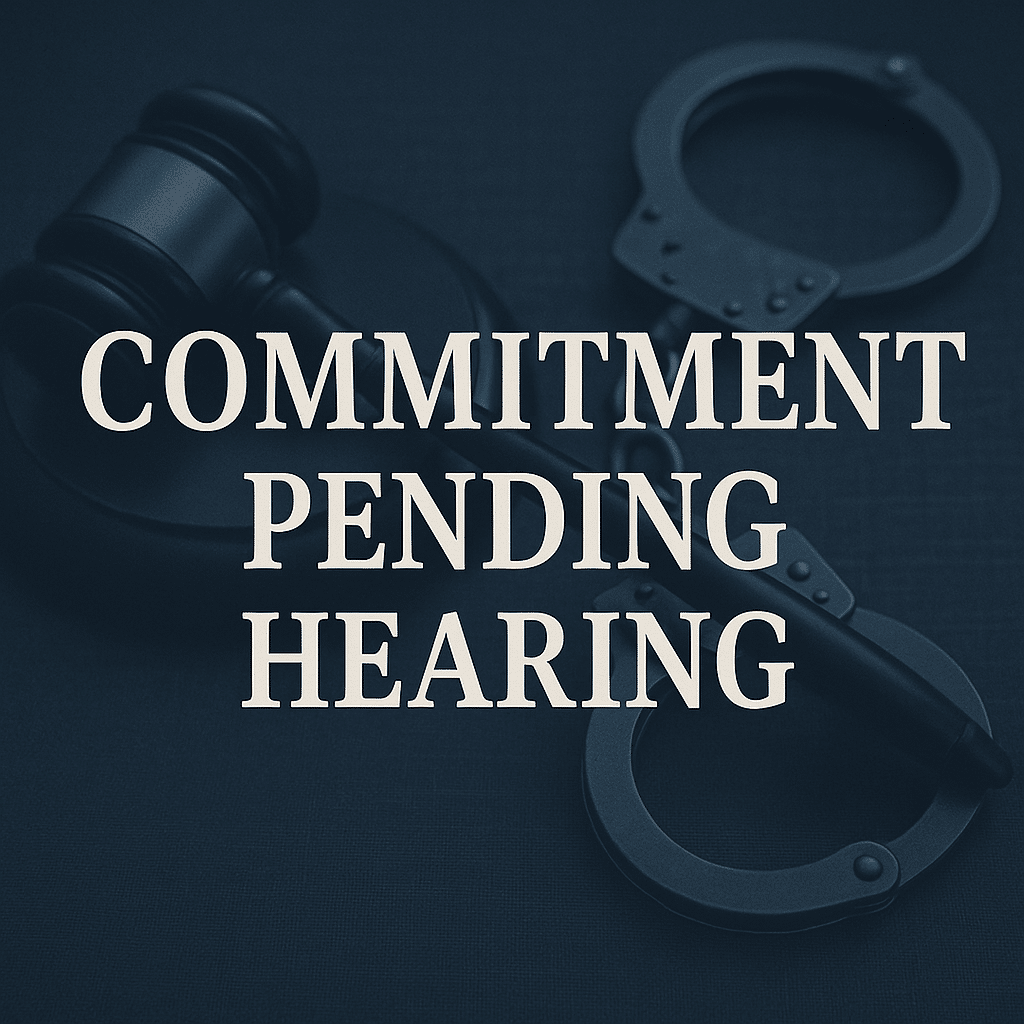
If you or a loved one has been taken into custody and told you’re being held under a “commitment pending hearing,” it’s important to understand what that means under Maryland law. This legal term often comes up in cases where a person is awaiting the outcome of a bail review, preliminary hearing, or mental health evaluation. Here’s what you need to know.
What Does “Commitment Pending Hearing” Mean?
“Commitment pending hearing” refers to a court order to detain a person temporarily in jail or a secure facility until a scheduled court hearing. This status usually applies when:
- A bail hearing is scheduled to determine pretrial release;
- A preliminary hearing is required for felony charges;
- The court orders a psychiatric evaluation under Maryland Code, Health-General § 10–632;
- The individual is deemed a potential danger to themselves or others pending evaluation.
In plain terms, the court is committing you to custody—not as a final punishment, but while you wait for a legal determination.
When Is This Status Used?
Commitment pending hearing is common in cases involving:
- Serious felony charges where the judge denies immediate release;
- Mental health concerns, where the defendant may require hospitalization or evaluation;
- Probation violations, especially when the alleged violation involves new criminal activity;
- Failure to appear, leading to a bench warrant and immediate detention.
This term appears on charging documents, court dockets, and commitment orders in Maryland circuit and district courts.
Is Commitment the Same as a Conviction?
No. Being committed pending a hearing is not a conviction. It’s a temporary custodial status. The court has not found you guilty of anything yet. However, your liberty is restricted while your legal issues are sorted out. The outcome of the hearing will determine whether you remain in custody, are transferred to a treatment facility, or are released under certain conditions.
How Long Can You Be Held?
The amount of time you can be held varies depending on the reason for your commitment:
- Bail review hearings typically happen within 24 to 72 hours.
- Preliminary hearings are generally scheduled within 30 days of arrest for felony cases.
- Mental health evaluations under emergency petitions must lead to a hearing within a short statutory window—usually within 10 days.
You are entitled to counsel at most of these hearings. An experienced Southern Maryland criminal lawyer can advocate for your release, challenge probable cause, or contest the need for continued commitment.
What Should You Do If You or a Loved One Is Committed Pending Hearing?
Here are the key steps:
- Contact a defense attorney immediately. The sooner your lawyer is involved, the faster they can review the reasons for commitment and prepare for your hearing.
- Review the commitment order. Understanding the basis for detention (e.g., bail denial, mental health concerns) is crucial to preparing a response.
- Prepare for your hearing. Whether it’s a bail review or competency determination, you’ll need to present facts that support your release or treatment alternatives.
The Role of a Criminal Defense Lawyer
A seasoned defense attorney can:
- File a motion to reconsider bond or argue for pretrial release with conditions;
- Advocate for a mental health diversion program rather than incarceration;
- Ensure your due process rights are protected;
- Represent you during the critical hearing that determines your immediate future.
If you’re facing commitment pending a hearing in Prince George’s County, Charles County, St. Mary’s County, or Calvert County, getting experienced representation can make the difference between continued detention and a chance to go home.
Facing Commitment Pending Hearing in Maryland?
Speak with a dedicated Southern Maryland criminal lawyer today. Schedule your consultation now and protect your rights.
